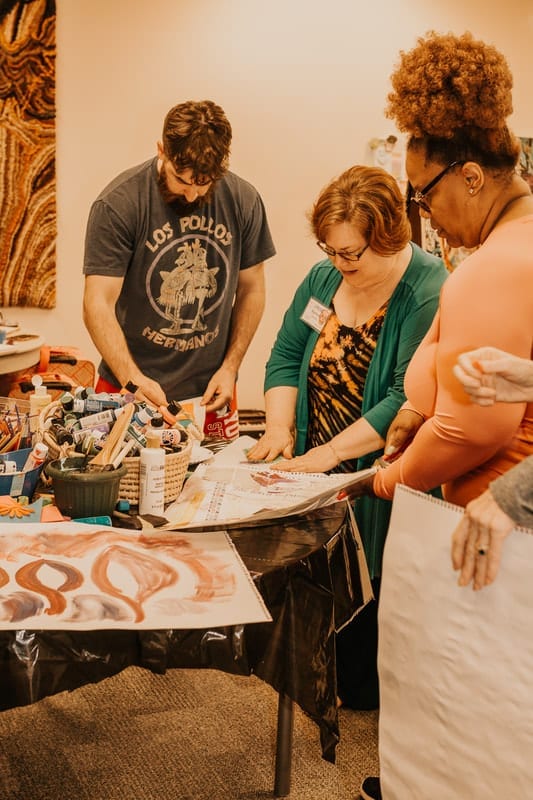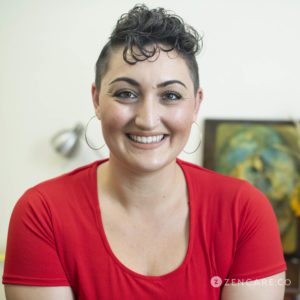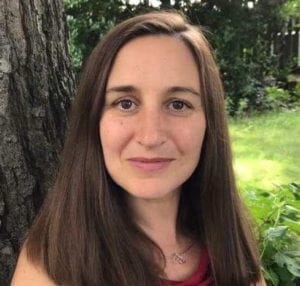Certificate of Expressive Arts Therapy
As of January 1, 2024 the Institute for Creative Mindfulness will no longer offer a Certificate of Expressive Arts Therapy. Our longtime faculty network partner Irene Rodriguez of Mindful Journey Center will continue to offer the same certificate curriculum with our endorsement.
Interested in the program? Please reach out directly to Irene at her email address.
About the Expressive Arts Therapy Certification
The Certificate of Expressive Arts Therapy Program requires that participants meet 75 hours of educational requirements and 25 hours of supervision requirements. Read more about supervision requirements and learn about our REAT supervisors on the Supervision in Expressive Arts page. This program is ideally suited for students also wanting to pursue EMDR Therapy Training with The Institute for Creative Mindfulness.
The Institute for Creative Mindfulness offers many online and in-person courses that meet the 75-hour supplementary educational requirement in Expressive Arts Therapy set by the International Expressive Arts Therapy Association (IEATA). Successful completion of your 75 hours covers the competency areas of group expressive arts therapy process, individual expressive arts therapy process, and approaches to, or styles of, Expressive Arts Therapy in practice and study, i.e., various approaches used by the applicant in integrating multi-arts in therapy.
ICM requires that the 75-hour supplementary educational requirement includes participation in at least one Intensive Training Program and the distance-based Process Not Perfection Book Course. ICM must disclose that the certificate program as a whole is not being offered for NBCC credit, only the qualifying CE program components that are specifically advertised for NBCC credit.

Expressive Arts Therapy Curriculum
The Certificate of Expressive Arts Therapy requires participants to complete 75 hours of educational programming, which must include an intensive training course and the Process Not Perfection book course. Below is the recommended approach to fulfilling the requirements of the Certificate Of Expressive Arts Therapy program.
Step 1: Process Not perfection Book Course
- Required for certificate track completion
- Distance Based, Study At Your Own Pace
- Supervisory review with ICM Registered Expressive Arts Therapist
- Ideal starting place for orientation towards certification
- Although no specific CE credit hours are offered for this course, the course counts as 20 hours towards your required 75 hours for the certificate
This course will open again at the beginning of 2024.
Step 2: Select your intensive training Program
At least one of the following intensive programs is required as part of your certificate hours.
Expressive Arts Therapy Module A
Principles of Mindfulness, Movement, and the Expressive Arts
The training itself is 18 hours. An additional 7 hours are awarded upon successful completion of the recommended reading (Dancing Mindfulness: A Creative Path to Healing and Transformation) and a follow-up paper to be reviewed by a supervising REAT. In this independent portion of the study, you are asked to reflect on your personal process with engaging in the integrated expressive/creative arts components in each of the core chapters and discuss multi-modal applications for using the Dancing Mindfulness practice along with 2-3 other expressive arts in a clinical setting. Additionally, you are eligible for separate basic certification as a Dancing Mindfulness Facilitator after completion of this live module. A list of currently scheduled trainings and information on the distance training can be found at dancingmindfulness.com.
Expressive Arts Therapy Module B
Trauma-Focused Approaches to Meditation, Breath Work, and Yoga-Based Somatic Movement in Clinical Settings
The training itself is 18.5 hours and must be taken in person or as an interactive online training as available. An additional 6.5 hours may be awarded upon successful completion of the recommended reading (list of choices provided at the training) and a follow-up paper to be reviewed by a supervising REAT. In this independent portion of the study, you are asked to reflect on your personal process with engaging in the exercises offered in your chosen book and discuss multi-modal applications for using practices explored at the training along with 2-3 other expressive arts in a clinical setting.
Expressive Arts Therapy Module C
EMDR Therapy Training
The training is broken up into Parts 1 and 2, each of which is 21 hours and must be taken in person. For more information about EMDR training see our EMDR Therapy Training page.
Completion of your EMDR Therapy Training program requires an additional 10 hours of consultation with an ICM EMDR Consultant. You may be able to count these consultation hours towards Expressive Arts Supervision hours when working with a REAT Supervisor who is also an EMDR Consultant. Make sure to check with your Supervisor!
*The trainings themselves are 18 CE credit hours. You can take these courses for 18 hours only, or you can earn up to 25 by writing a Supplementary Paper. The requirements for the paper are listed below.
If you choose EMDR Therapy Training as your intensive, you must follow up with at least one Retreat program from the lists below.
Step 3: Complete Your Remaining Hours with Any of These offerings
Based on your previous selections your will need to complete between 13 to 37 additional educational hours to meet the certificate requirements. This may be accomplished by participation and successful completion of any of the following offerings. Our use of the term hours in this section refers to hours that can be counted towards your total 75 educational hours for the Certificate of Expressive Arts Therapy. Some of these courses do come with accompanying CE credit hours that can be used towards your professional license, although you will need to click on each individual offering for more details.
Non-Compulsory Intensives
Expressive Arts Therapy Module D
16 total hours
In addition to attendance at the retreat held every spring, participants must also complete a supplementary paper or submission demonstrating how you utilized three or more expressive art forms during the retreat and how you plan to implement your learning in clinical settings. Standard CE credit hours available for certain retreat sessions. For more information click HERE.
Expressive Arts Therapy Module E
16 total hours
In addition to attendance at the retreat held between Thanksgiving and Christmas, participants must also complete a supplementary paper or submission demonstrating how you utilized three or more expressive art forms during the retreat and how you plan to implement your learning in clinical settings. For more information click HERE.
Distance Based Courses
This is Dr. Marich’s original Introduction to Expressive Arts Therapy course that many people take for an overview of the fundamentals. This version of the course, taught in 2021, is available on-demand through PESI, LLC. For more information and to register, please click HERE.
Dancing Mindfulness: A Creative Path to Healing and Transformation
12 total hours
A book course sponsored by Curious.com with supplementary reaction piece required for submission. Start course here >>>
*NOTE: This course can only be counted if you did not use the Dancing Mindfulness Facilitator Training Intensive (Expressive Arts Therapy Module A) toward your hours.
Hours vary by course.
ICM’s online distance learning platform offers a variety of options that fulfill the education requirements for the Certificate of Expressive Arts Therapy. View courses here >>>
You may count up to 2 courses or retreats/pilgrimages offered by Abbey of the Arts, an expressive arts based ministry and program operated by our associate Christine Valters Paintner, Ph.D., REACE. The Abbey of the Arts offers a variety of programming, both online (courses, virtual retreats) and in-person (pilgrimages, retreats). Depending on the length of the course, retreat, or pilgrimage, you can be awarded 8-16 hours for each program you select (contact us for specific details on transfer of hours).
Please visit the Abbey website to browse your options. A brief reflection paper submitted to your REAT supervisor discussing clinical applications of the content you studied in the course is required for the hours to count.
Additionally, you may work through the following books by Dr. Paintner and submit a reflection paper to your REAT supervisor highlighting your personal process and clinical applications of the skills covered in each book (8 hours of credit awarded for each book, no additional charge for these hours as you will be expected to go over the book in a supervision session):
- The Wisdom of the Body: A Contemplative Journey to Wholeness for Women (2017)
- The Soul of a Pilgrim: Eight Practices for the Journey Within (2015)
- The Artist’s Rule: Nurturing Your Creative Soul with Monastic Wisdom (2011)
- Water, Wind, Earth, & Fire: The Christian Practice of Praying with the Elements (2010)
- Awakening the Creative Spirit: Bringing the Arts to Spiritual Direction (2010)
- Eyes of the Heart: Photography as a Contemplative Christian Practice (2013)
- Lectio Divinia—The Sacred Art: Transforming Words and Images into Heart Centered Prayer (2011)
You may work through the following books and submit a reflection paper highlighting your personal process and clinical applications of the skills covered in each book (8 hours of credit awarded for each book depending on the depth of content, no additional charge for these hours as you will be expected to go over the book in a supervision session):
- Mindfulness And the Arts Therapies: Theory and Practice (Laury Rappaport & Jared Kass, Eds.)
- Expressive Arts Therapy for Traumatized Children And Adolescents: A Four Phase Model (Carmen Richardson)
- Attunement In Expressive Arts Therapy: Toward an Understanding Of Embodied Empathy (Mitchell Kossak)
- Integrating the Expressive Arts Into Counseling Practice: Theory Based Interventions (Suzanne Degess-White & Nancy Davis, Eds.)
- The Creative Connection: Expressive Arts As Healing (Natalie Rogers)
- The Four Fold Way (Angeles Arrien)
- Grammar For a Full Life: How the Ways We Shape a Sentence Can Limit Or Enlarge Us (Lawrence Weinstein)
- The Life of Poetry (Muriel Rukeyser)
- Starship Therapise: Using Therapeutic Fan Fiction to Rewrite Your Life (Larisa A. Garski and Justine Mastin)
- Trauma and Expressive Arts Therapy: Brain, Body, & Imagination in the Healing Process (Cathy Malchiodi)
- Art as Medicine: Creating a Therapy of the Imagination (Shaun McNiff)
- Dancing with Maria [Bailando con Maria]- Film by Ivan Gergolet
Live Online or In-Person Courses
See our Calendar of Select Expressive Arts Trainings for events and workshops coming to your area or live online.
Any conference presentation you may have attended with Dr. Marich on Dancing Mindfulness, creative mindfulness, or trauma-informed interventions where the expressive arts were implemented (consult with your supervisor for courses that qualify and exact transfer of hours). Click HERE for a full calendar of public appearances and conferences by Dr. Marich.
You may request to have up to 12 hours of coursework from another expressive arts education program transferred in to this certificate program for the completion of your 75 hours. All requests for transfers will be individually evaluated.
*For those enrolled in Dancing Mindfulness Facilitator Training or Yoga For Clinicians.*
The purpose of supplemental reaction papers (which can include other submissions of expressive media such as video, audio, or visual art forms) is to assess your ability to analyze the information received during a course and demonstrate your ability to implement this learning in a clinical environment.
The overall learning objectives for the supplemental reaction papers on which you will be evaluated are:
- To describe three key points of learning from the primary experience (e.g., attending an intensive or retreat; reading a book or taking an approved supplemental course)—lower levels of Bloom’s taxonomy
- To report your personal experience with working through at least three or more exercises described in the supplementary reading for an intensive, or in the case of a book course, the book itself. Emphasis expected to be placed on the multi-art nature of your participation with these exercises—lower levels of Bloom’s taxonomy
- To introduce a brainstorm of how you would apply the concepts that you learned in the main course or reading alongside three other expressive arts forms; this objective is especially important if the intensive or course you took (or the book you read) focused primarily on one expressive art form—lower/middle levels of Bloom’s taxonomy
- To propose a plan for implementing elements of your brainstorm into a clinical setting in concert with evidence-based clinical modalities (e.g., DBT, CBT, experiential, Gestalt, EMDR therapy) in both individual and group settings. This objective can be met using step-by-step instructions for implementation, similar to a handout you may give a group—higher levels of Bloom’s taxonomy
- To recommend, in conclusion, at least two ideas of how you would integrate other expressive arts forms into an intensive training experience (in the case of Dancing Mindfulness & Yoga for Clinicians); for books or other courses, you may also make recommendations for how the author or course leader could have integrated expressive arts forms they didn’t consider or how they may have emphasized integration of the expressive arts more robustly– higher levels of Bloom’s taxonomy
Length of reaction papers/projects: Generally your work is evaluated in terms of quality rather than quantity; as long as the objectives are being met in a way that reflects the Bloom’s taxonomy expectation, you have “passed” that objective. All objectives must be met/passed for the credit to be granted. If there is a problem with the quality as assessed by Dr. Marich, specific feedback will be given and you will be given a chance to recreate/resubmit.
We are aware that navigating this collage of options can be confusing. Please feel free to reach out to us if you have specific questions.
Supervision Requirements
- 25 Hours of Individual Supervision
In addition to 75 education hours, the Certificate of Expressive Arts Therapy also requires 200 clinical hours guided by 25 hours of individual supervision. Program participants must complete their supervision hours with an ICM Expressive Arts Supervisor. More details and links for supervision registration and payment are available at the link below.
Continuing Education
Many of the courses offered in the Certificate of Expressive Arts Therapy program are eligible for continuing education. For more information about CE credit hours offered please check the individual event pages, accessible through the Expressive Arts Therapy training schedule here.
CE approvals vary for different components of the program. For more information on CE credit approvals, please see Continuing Education Approvals.
View the Select Calendar of Expressive Arts Therapy Programs
A quick reference of live trainings held by Dr. Jamie Marich or affiliates that can be counted towards the certification in Expressive Arts Therapy.
Eligibility for the Certificate of Expressive Arts Therapy Program
A masters or doctoral degree
A masters or doctoral degree in a clinical mental health-related field (e.g., counseling, marriage & family therapy, social work, psychology) is required. Although it is not required, it is strongly preferred that you are in active clinical practice and working with clients.
Master’s level students
Medical Professionals
Medical professionals (e.g., nurses, physicians) are also eligible to take the course if they possess a clinical master’s or doctorate degree and if their primary specialty is within mental health.
Chemical dependency professionals
Diversity & Social Justice Scholarship
Frequently Asked Questions
No, you do not need to complete the curriculum in any particular order. However, we strongly encourage trainees start with the Process Not Perfection Book Course because it offers an opportunity to connect with an ICM REAT Supervisor who will help guide and orient you through the process of successfully completing the curriculum. Upon registering for the book course, a REAT supervisor (most likely Irene Rodriguez) will be in touch with you via email to go over details on the rest of the program and will set up a time to talk if needed. If you are already a student in one of our other programs (e.g., EMDR Therapy training, Dancing Mindfulness, Yoga for Clinicians), please contact Irene Rodriguez directly to review program requirements: irene@mindfuljourneycenter.com.
While you are not eligible for the certificate of expressive arts therapy, we have trainees of all backgrounds attending expressive arts courses such as Dancing Mindfulness Facilitator Training, and our Expressive Arts Retreats.
Our courses may additionally count toward’s the International Expressive Arts (IEATA’s) Registered Expressive Arts Consultant and Educator (REACE) credential.
We do not offer a “lump sum” pricing for the program unless an organization or a person approaches us directly to ask for a quote because they are being funded by an outside source. It is easiest for you, if paying individually, to “pay as you go” for the various required courses, intensives, and supervision fees. The fees of these courses can depend on what you choose. On average, people end up spending about $3500.00 for the program.










